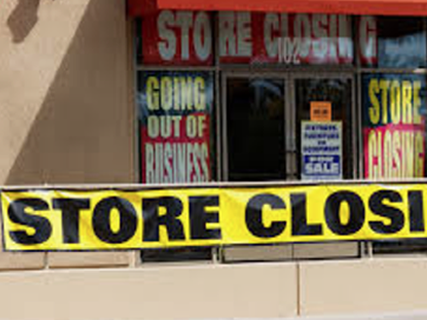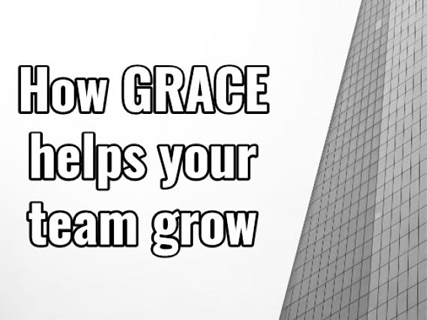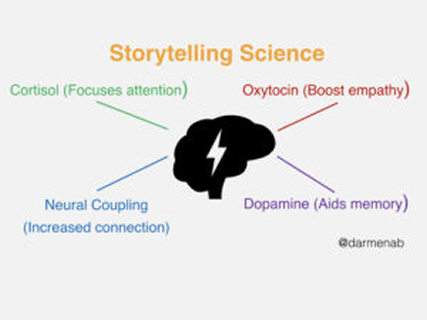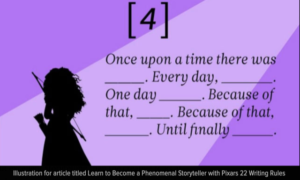
What Deaf People Can Teach Others About Virtual Communication
Have you noticed that talking with someone through a mask is difficult? Since 50% of our body language is communicated through our facial expressions, having a mask cover about 50% of the face severely inhibits our ability to communicate and connect with others and vice versa. It’s maddening.
When wearing a mask, we all need to slow down our cadence to speak more clearly and articulately, really connect through eye contact and put more energy into our voice so that we are speaking louder and with more energy. Trying to understand someone through a mask is especially difficult for those of us with a hearing impairment.
Since it seems that we will be wearing masks for many months to come, make a conscious effort to communicate effectively. Now more than ever we need to lean into kindness, patience and humanity, and truly listen to others.
#WiseWords
Worth the Share
 If you know someone who is deaf or hard of hearing, you are probably aware of the need to be intentional when speaking or communicating with them. This article from the Harvard Business Review takes that intentionality to a whole new level as it explores what the hearing impaired can teach us about communicating via video conferencing. My favorite point is to pace yourself on video calls, don’t race through, so that there can be a thoughtful exchange of information. Also, the author supports something I have said many times, wear solid color tops since patterns can be visually distracting. Read on for more helpful tips…
If you know someone who is deaf or hard of hearing, you are probably aware of the need to be intentional when speaking or communicating with them. This article from the Harvard Business Review takes that intentionality to a whole new level as it explores what the hearing impaired can teach us about communicating via video conferencing. My favorite point is to pace yourself on video calls, don’t race through, so that there can be a thoughtful exchange of information. Also, the author supports something I have said many times, wear solid color tops since patterns can be visually distracting. Read on for more helpful tips…
And Finally...
 Last week I had the opportunity to present Using Communication as a Competitive Advantage virtually to about 100 women for Fairygodboss, a comprehensive website for women and their careers.
Last week I had the opportunity to present Using Communication as a Competitive Advantage virtually to about 100 women for Fairygodboss, a comprehensive website for women and their careers.
We covered ten common communication misses that we are often not aware of and various techniques to become a more confident communicator during high stakes situations. If you would like to view the presentation, you can find it here.
Have a great week,
Mary Jo



 You’ve probably seen this in the news. Since April, 2020, 5,000 retail stores have closed and only 680 have opened. How we shop is changing. Companies are rethinking their office space needs and even questioning the need of having a headquarters location. Where we work is also changing.
Yet, in all of this change, the need for human connection is more important than ever. Stay connected – on the phone, via VC, or across the fence.
Good luck navigating the constant change.
Stay safe,
Mary Jo
You’ve probably seen this in the news. Since April, 2020, 5,000 retail stores have closed and only 680 have opened. How we shop is changing. Companies are rethinking their office space needs and even questioning the need of having a headquarters location. Where we work is also changing.
Yet, in all of this change, the need for human connection is more important than ever. Stay connected – on the phone, via VC, or across the fence.
Good luck navigating the constant change.
Stay safe,
Mary Jo 

 In additional to all of the sage leadership advice about developing gravitas, I would offer that there are also specific things you can do with your body and your voice to elevate your gravitas when warranted in business settings. Perhaps when you interview for a new job, or attend a board meeting, or present to you peers? Never underestimate the POWER of communication techniques, such as taking a nice long pause when speaking, so that you show up with more gravitas.
Have a great Q4,
Mary Jo
In additional to all of the sage leadership advice about developing gravitas, I would offer that there are also specific things you can do with your body and your voice to elevate your gravitas when warranted in business settings. Perhaps when you interview for a new job, or attend a board meeting, or present to you peers? Never underestimate the POWER of communication techniques, such as taking a nice long pause when speaking, so that you show up with more gravitas.
Have a great Q4,
Mary Jo 

 When you see something, say something. A couple of weeks ago I was talking to a friend who is also an Executive Coach, and noticed that he didn’t seem like himself. So I asked him about it. Long story short, he wasn’t himself. He had been working so hard and plowing through all that was on his plate, that he lost sight of the need to rest and recharge. Happily he gave himself the gift of time and did just that… and now is in a much better place.
When you see something, say something. A couple of weeks ago I was talking to a friend who is also an Executive Coach, and noticed that he didn’t seem like himself. So I asked him about it. Long story short, he wasn’t himself. He had been working so hard and plowing through all that was on his plate, that he lost sight of the need to rest and recharge. Happily he gave himself the gift of time and did just that… and now is in a much better place.


 One of my favorite assessments is the
One of my favorite assessments is the 




 The storytelling framework made famous by PIXAR is from Kenn Adams, and it is just eight sentences. Try it. Flex your storytelling muscle. Fill in the second half of
The storytelling framework made famous by PIXAR is from Kenn Adams, and it is just eight sentences. Try it. Flex your storytelling muscle. Fill in the second half of




 In the listening framework we learned at Columbia, from the Co-Active Coaching model, the authors talk about three levels of listening:
In the listening framework we learned at Columbia, from the Co-Active Coaching model, the authors talk about three levels of listening:
